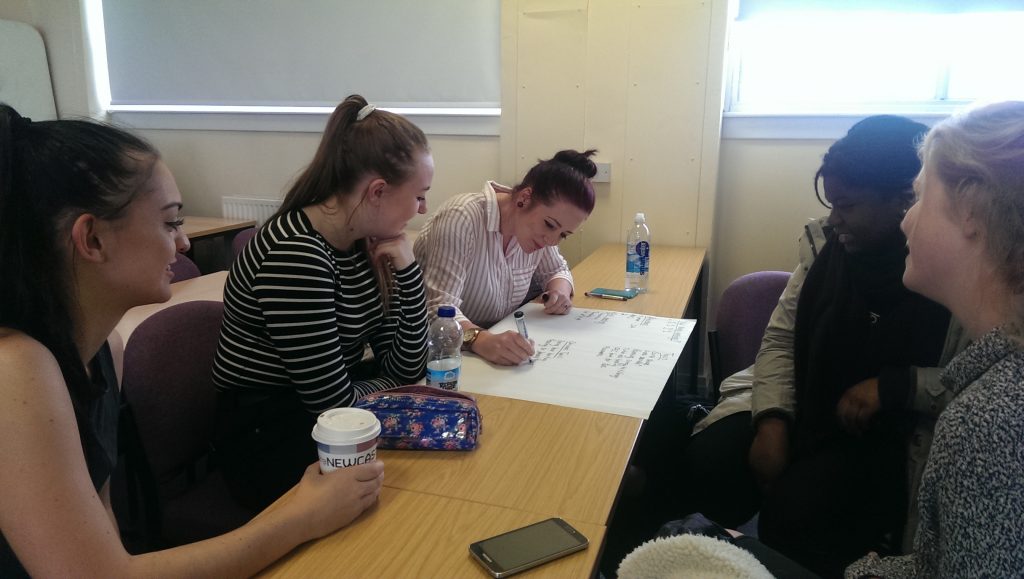With the Peer Mentoring Scheme well underway across the University, mentors have been meeting with convenors to check how things are going.
Alison Graham convenes the Peer Mentors in the School of Biology.

She meets with Peer Mentors in the school in week 2, week 4 and week 7 or 8, just to check how students are doing and make sure that mentors and mentees are getting the most out of the scheme.
‘What I’ve started to try to do is to incentivise the meetings, so the students feel that they are getting something out of them, as well as just catching up.
‘I came up with the idea of tying them to the Graduate Skills Framework, so I often work through how the mentors will be able to use their skills in applying for jobs.
‘We go through how to evidence the skills that they’ve gained in applications and at interview.’
Alison hopes that this approach will make the scheme more lucrative for second and third year students who may be unsure about giving up their time.
‘It’s really about making sure that students can see and really use the skills they are gaining form being a Peer Mentor, in addition to helping other students.’
Alison says the scheme has proved popular in the School and that students have described it as useful but that often the whole experience relies on engagement from the mentors.
‘We have some excellent mentors who establish a real social group and relationship with their mentees by organising trips and events.
‘We try to encourage that and encourage teamwork within the groups – for example, we organise a treasure hunt in week one where they all have to work together.’
She says that the amount of engagement with mentors depends on individual students and often to circumstances.
‘But it depends on them. Some students only really liaise with their mentor in the first few weeks but some need a little bit more.
‘They also tend to turn to their mentors around exam and assignment time.
‘But it can also be really important for some students who are struggling.’
As a convenor for the programme, Alison points out that its important for the mentors to be trained and supported so that they know what queries they can answer.
‘We have to be quite careful to make sure that they know how much help they can give students with their academic work.
‘Obviously they can provide some advice but we don’t want people sharing assignments or anything, so that’s something we have to train them for.’
As well as the feedback meetings, Peer Mentors have all been invited to a Thank You party, taking place on 5th December in the Great North Museum.
Claire Burnham, the University’s Peer Mentoring Coordinator said: ‘We’re very excited about the event.
‘The Mentor of the year award will be presented on the night and we’ve already had 400 nominations from students across the University.
‘It’s a great way of rewarding our mentors and our convenors for all of their hard work.’
